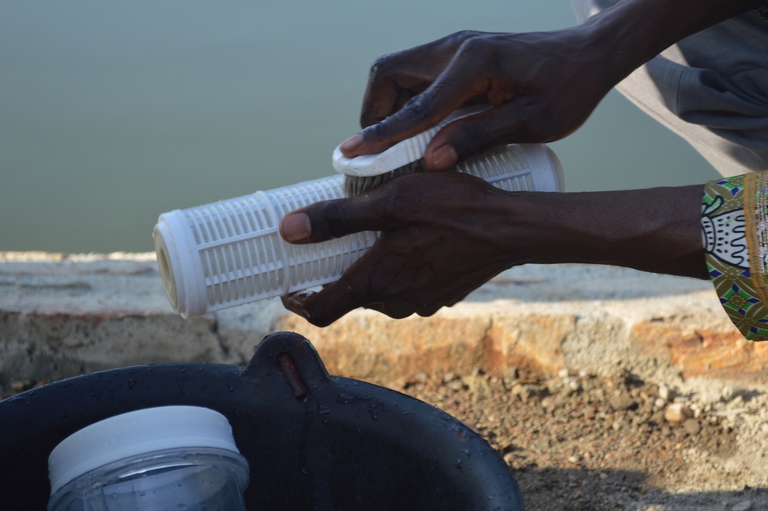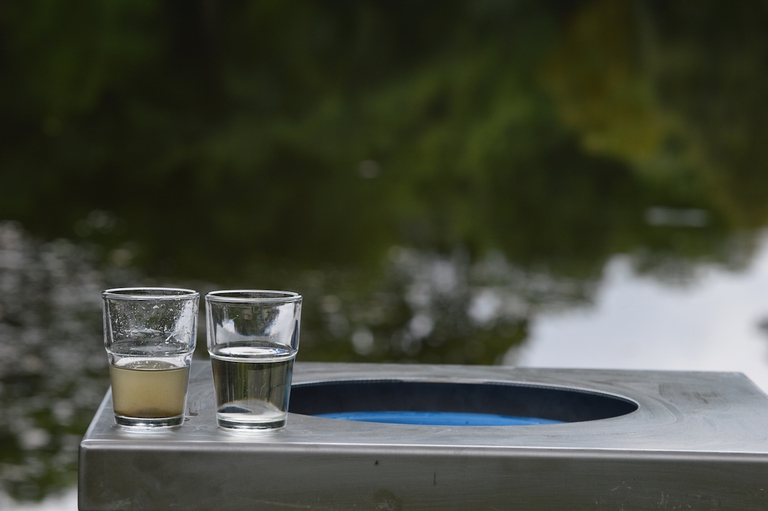
South African court dismisses a major lawsuit by 140,000 Zambian women and children against Anglo American for Kabwe lead poisoning. A setback for affected communities enduring the lasting impact of lead contamination.
It’s called Safe Water Cube, it costs 5,500 euros and purifies every type of surface water without the need for electricity or maintenance.
About 750 million people worldwide still lack access to clean drinkable water. And 2.6 million people die every year from diseases resulting from unsafe drinking water. 76 percent of women and children living in developing countries spend 140 million hours collecting it in the nearest wells and fountains. This situation is estimated to get worse in the next few years due to climate change and the rapid population growth.
https://www.youtube.com/watch?v=0Ajul_oWvWs
For this reason, six years ago Jean-Paul Augereau, a French inventor in his 50s, tried to find “a suitable solution for every condition, one that can also be used in remote villages”. After weeks, months and years of hard work in his home in Carquefou, in the suburbs of Nantes, he finally reached his goal.
He then created the Safe Water Cube, a machine that makes every type of water drinkable, without using electricity. It is 1.2 metres tall, is automated and mobile, and can purify 1,000 litres of water per hour from different sources: rivers, seas, wells or ponds. In addition, it meets the criteria established by the World Health Organisation.
“The system – Augereau explains – makes every type of surface water drinkable, even if it’s muddy. It doesn’t require electricity, nor maintenance, it only needs to be cleaned with water and vinegar. To activate the machine you just need to pour or pump the liquid in the tank and then start the hand pump”. Then the fluid is mechanically filtered in five phases. In the last stage, water passes through a ceramic filter that removes every type of bacteria and viruses.
“There are similar machines in the market, but none of them is so effective in producing clean drinking water”. This system was so appreciated by the Municipality of Nantes so it decided to buy 15 machines that have been sent to some of the worst-affected areas of Haiti by Hurricane Matthew. Augereau’s invention is also rather cheap: it just costs 5,500 euros. A few NGOs have already sent a dozen machines to Benin, Senegal, India and Sri Lanka. And another 300 purifiers will soon be sent to Côte d’Ivoire.
Siamo anche su WhatsApp. Segui il canale ufficiale LifeGate per restare aggiornata, aggiornato sulle ultime notizie e sulle nostre attività.
![]()
Quest'opera è distribuita con Licenza Creative Commons Attribuzione - Non commerciale - Non opere derivate 4.0 Internazionale.
South African court dismisses a major lawsuit by 140,000 Zambian women and children against Anglo American for Kabwe lead poisoning. A setback for affected communities enduring the lasting impact of lead contamination.
Controversial African land deals by Blue Carbon face skepticism regarding their environmental impact and doubts about the company’s track record, raising concerns about potential divergence from authentic environmental initiatives.
Majuli, the world’s largest river island in Assam State of India is quickly disappearing into the Brahmaputra river due to soil erosion.
Food imported into the EU aren’t subject to the same production standards as European food. The introduction of mirror clauses would ensure reciprocity while also encouraging the agroecological transition.
Sikkim is a hilly State in north-east India. Surrounded by villages that attracts outsiders thanks to its soothing calmness and natural beauty.
Sikkim, one of the smallest states in India has made it mandatory for new mothers to plant saplings and protect them like their children to save environment
Chilekwa Mumba is a Zambian is an environmental activist and community organizer. He is known for having organized a successful lawsuit against UK-based mining companies.
What led to the Fukushima water release, and what are the impacts of one of the most controversial decisions of the post-nuclear disaster clean-up effort?
Nzambi Matee is a Kenyan engineer who produces sustainable low-cost construction materials made of recycled plastic waste with the aim of addressing plastic pollution and affordable housing.









